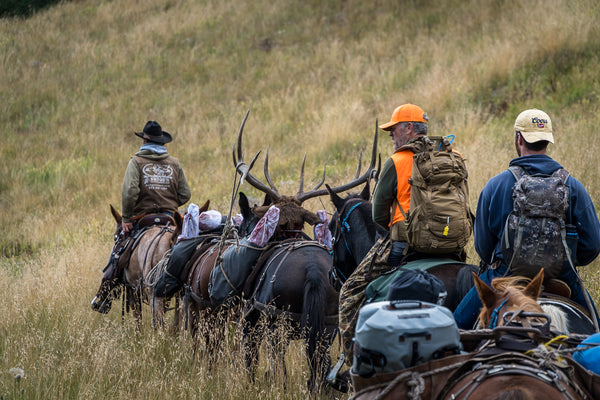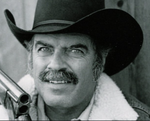Some people love their jobs, some hate them, and some just plod along waiting eagerly for the day they can retire. Some jobs are mental, some are physical, and some are both. Some are dangerous.
A mason, for example, needs to be physically capable of handling heavy cinder blocks, bricks, and heavy wheelbarrows of wet cement. Carpenters carry heavy boards and work on and off ladders in high places. Plumbers work in tight areas and typically must deal with clogged toilets and drains. White-collar workers are mentally stressed with business scenarios.
What about the hunting guide? How much physical and mental stress is required? The answer depends on what kind of critter is being hunted. If you’re considering a waterfowl or pheasant hunt, there’s not much physical outlay. Guiding mule deer and antelope hunters in good access areas where you can get around in an ATV or pickup requires some effort if any hiking and/or transporting an animal overland is necessary.

But if you’re talking about a wilderness hunting guide who hunts out of a backcountry camp with horses, you’re looking at all the qualities required - physical, mental, and dangerous. To many, this is the quintessential job, one where you can be outdoors all the time and be directly involved in intensive hunting as well.
As in every job, there are drawbacks, but for the person who really wants to work in the outdoors, a guiding profession might just be the answer.
Let’s look at some mandatory requirements. First off, you need to be comfortable in the woods and be able to find your way around. A good sense of direction is important. Obviously, you can’t be getting you and your client lost. GPS devices are in common use these days which should help you navigate, but it’s always a good idea to educate yourself with maps and a compass in case your device doesn’t work.

Being comfortable in the woods also means you should be okay with living and working around large predators, especially grizzlies. If you express any fear your client may be discouraged from traveling in low-light hours in order to get to hunting areas. If a client is nervous in the woods, he or she may be tough to convince that you need to continue on even if you see fresh bear or lion tracks.
In other words, you’re the leader. Your clients will look up to you for direction and information. In that regard, you need to be up to speed as far as being knowledgeable about the behavior of the quarry you’re hunting. If you’re hunting elk, you must understand their daily habits, preferred bedding and feeding areas and how to vocalize with them if you’re hunting during the rut.
When an elk is down, you must field dress it, often by yourself if the client is hesitant to help. You might also have to skin, quarter or bone the meat and either load it on packhorses yourself or hang it until you can come back in the morning with some help. Though it’s helpful if the client pitches in and helps, you might have to do this chore yourself.

Knowledge of horses is mandatory. The best guides are those who have been raised with horses and understand how to quickly educate a client how to ride. He should know how to balance and pack panniers and know the knots required to keep the load tethered tightly. A horse wreck on the trail due to a problem with the panniers or the load can be dangerous. Horses and mules may be running through trees, on steep terrain, and the ropes that tie them together add more to the confusion.
Since tent camps are the norm on wilderness hunts, the guide needs to be expert in getting the camp established. A temporary sanitary structure must be made, and firewood needs to be cut. In a wilderness chain saws and generators aren’t allowed which means the firewood must be cut by hand, typically with a two- man crosscut saw. The cook tent and the food and gear must be stowed and organized. Hunter’s tents are set up and cots and woodstoves are moved in.

Saddles and tack are stored in a dry tent, all horse feed is unloaded and packed away, and all animals must be prepared for the night by being picketed or hobbled and left on their own to feed during the night. One or two horses are fitted with a bell which allows them to be located in the dark when they’re rounded up for the morning hunt. At times the animals will drift a long way from camp, even though some wear hobbles, requiring the guides to find them. This is tough work in the dark with only a headlamp or flashlight to guide the way. Some animals decide they aren’t interested in the upcoming hunt and head down the trail to the trailhead. This is when a guide has his work cut out for him.
So far we’re discussing the physical outlay. That’s only part of the job. An important aspect is being able to get along with people. The outfitter will assign one or two hunters to each guide. The clients will be following you all day, whether you’re on horseback or hiking. A guide should sit down with the hunters prior to going out and become familiar with any medical or physical issues. Some hunters are elderly and can’t keep up with the guide or the other hunter also assigned to that guide. It’s frustrating for a hunter to be paired up with someone else who can’t keep up, unless, of course the two are buddies and booked the hunt together.
Guides should also maintain their pace in accordance with the hunter and slow down if necessary. That’s why it’s important to become familiar with shortcomings before planning a strenuous day.

There are more factors to be considered but these are among the most important. Bottom line, you’ll be mentoring someone who may never have been in mountain country before or lived in a primitive camp. They’ll be looking up to you for guidance. It’s up to you to provide it and don’t be surprised if you become great friends with a perfect stranger. That’s one of the many benefits of being a guide. There’s plenty of camaraderie with like-minded folks. That’s a wonderful benefit, especially when you’re sitting around a crackling campfire with brand new friends.














